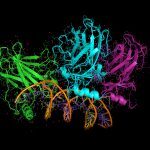Journal of Proteomics, 2019, 103441, ISSN 1874-3919.
Results from mass spectrometry based quantitative proteomics analysis correspond to a subset of proteins which are considered differentially abundant relative to a control. Their selection is delicate and often requires some statistical expertise in addition to a refined knowledge of the experimental data. To facilitate the selection process, we have considered differential analysis as a five-step process, and here we present the practical aspects of the different steps. Prostar software is used throughout this article for illustration, but the general methodology is applicable with many other tools. By applying the approach detailed here, researchers who may be less familiar with statistical considerations can be more confident in the results they present.
Anyone clicking on this link before September 13, 2019 will have a free access to the article: https://authors.elsevier.com/c/1ZSDq6gB-WXHNp



